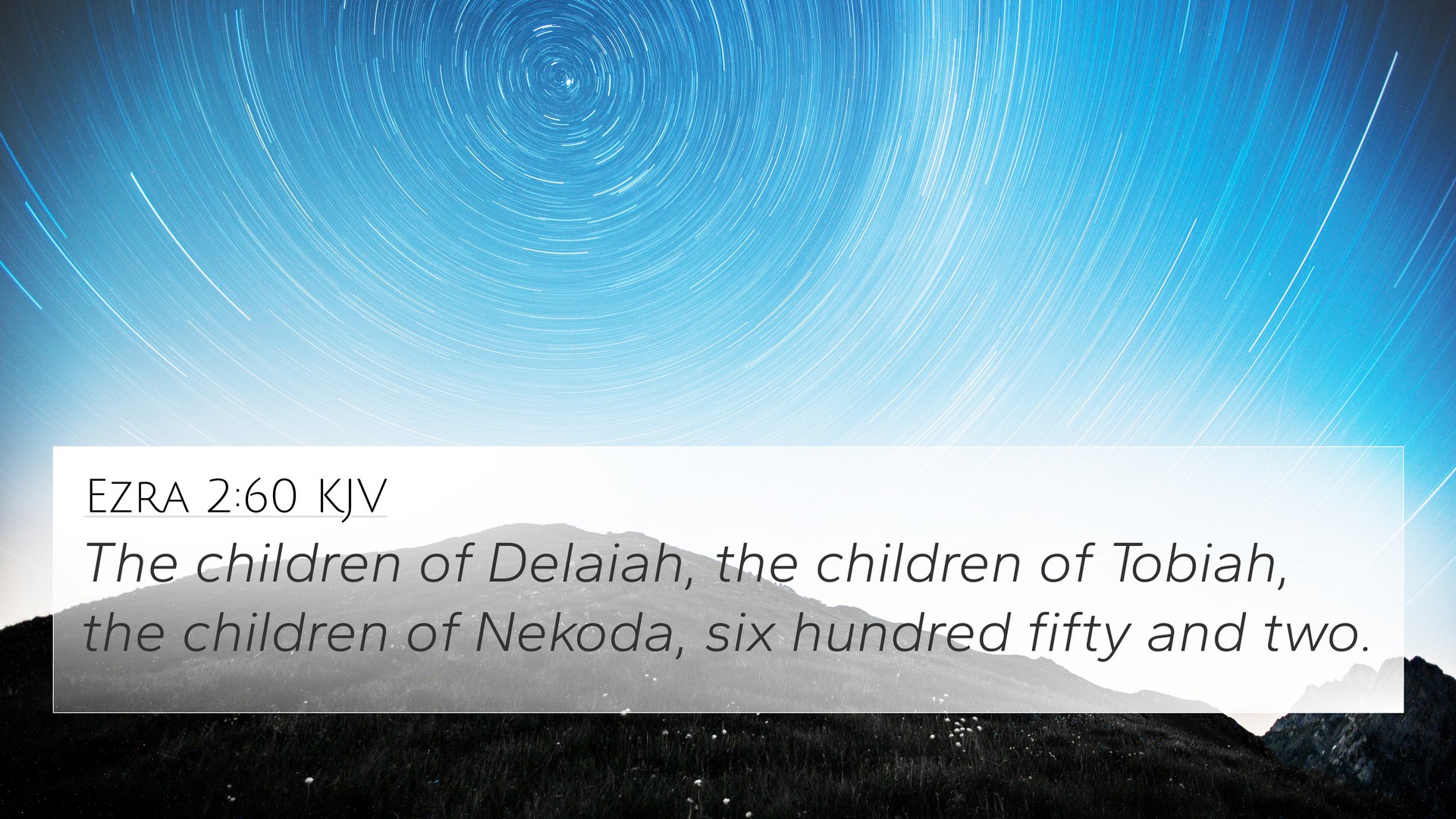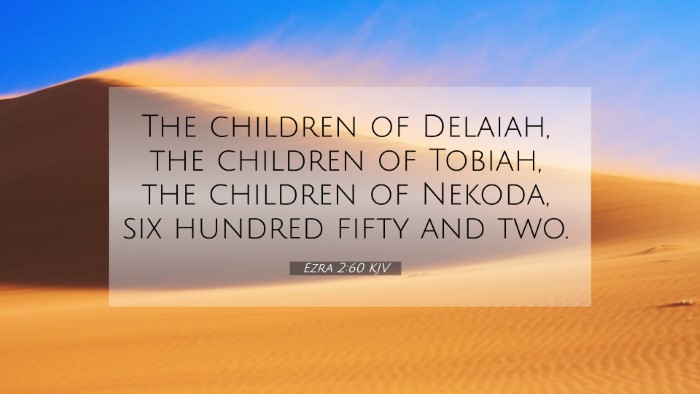Understanding Ezra 2:60
Ezra 2:60 presents a list of families from the tribe of the priests whose descendants were unable to establish their genealogy. This verse signifies the complexities of identity and heritage among the Jewish people during the return from Babylonian exile.
Meaning and Insights
According to Matthew Henry, this verse emphasizes the importance of lineage. The inability to trace one's genealogy was significant in Jewish culture, particularly for the priests, as it directly affected their eligibility to serve in the temple.
Albert Barnes expands on this by noting how this situation reflects a broader theme within the context of Ezra and Nehemiah; the need for purity and legitimacy within the returning exiles. Their spiritual and national identity depended heavily on their genealogy.
Adam Clarke provides further insight by discussing the implications of these untraceable genealogies. He suggests that this may indicate a loss of records during the exile, underscoring the trauma and dislocation experienced by the Jewish people.
Key Themes
- Identity: The struggle of the Israelites to maintain their identity post-exile.
- Legitimacy: The significance of priestly lineage in the context of temple worship.
- Historical Trauma: The impact of the Babylonian exile on community records and identities.
Cross-References and Related Verses
To further understand Ezra 2:60, it is beneficial to consider the following Bible verses that provide connections and insights:
- Nehemiah 7:62: Details the same issue of untraceable genealogies among the priests.
- Ezra 2:1-2: Lists those who returned from Babylon, emphasizing their identities.
- Revelation 21:12: Mentions the names of the twelve tribes symbolizing the eternal security of God's people.
- Jeremiah 30:3: Prophecies the return of Israel to their own land.
- Ezra 7:1-5: Discusses Ezra's genealogy and the importance of priestly lineage.
- Matthew 1:1-17: The genealogy of Jesus, emphasizing the importance of lineage in God's plan.
- Hebrews 7:14: Mentions the significance of Christ’s heritage as a descendant of Judah.
- Malachi 2:4-7: Highlights the covenant with Levi and the expectation of priestly integrity.
- 1 Chronicles 5:29-31: Discusses the significance of priestly families and historical records.
- Luke 3:23-38: Provides a full lineage of Jesus, illustrating the importance of genealogy.
Conclusion
Ezra 2:60 not only sheds light on the genealogical challenges faced by the returning exiles but also serves as a reminder of the broader themes of identity and heritage in the Bible. The connections between this and other Bible verses qualitatively enrich our understanding of scripture and its teachings. As we explore these connections, we can see the thematic relevance throughout both the Old and New Testaments—a testament to the intricate tapestry of God's narrative with his people.



